SUMMARY
This is AI generated summarization, which may have errors. For context, always refer to the full article.
![[OPINION] When the health emergency becomes a non-emergency](https://www.rappler.com/tachyon/2022/11/tl-piece-public-health-November-12-2022-revised-02.jpg)
In an interview, President Ferdinand Marcos Jr. made it clear that the appointment of the Secretary of the Department of Health (DOH) is not yet on his administration’s agenda since he intends to oversee the Philippines’ transition out of the COVID-19 state of emergency and implement his administration’s health sector reforms himself.
The President is correct in his assumption that pushing the Philippines forward to post-pandemic normalcy should go hand in hand with realizing crucial and much needed reforms in the sector. However, how exactly he and his Cabinet will transform this vision into reality without a fully functioning DOH and a capable secretary remains to be clarified.
Regardless, balancing public health and economic recovery should remain at the top of the administration’s agenda. The latest opinion polls show that while the government enjoys high approval ratings in controlling the spread of COVID-19 (78%), it is also facing considerable pressure to better address poverty (39%) and inflation (31%). These are issues that have been heavily exacerbated by the COVID-19 pandemic and the Duterte administration’s mishandling of the country’s COVID response.
Moving on?
President Marcos Jr. must avoid making the same miscalculations as his predecessor if he is to follow through on his vision of a robust and resilient post-pandemic economy. These miscalculations include corruption such as the PhilHealth and Pharmally scandals, conflicting and irrational policy directives, lack of preparedness, nonstrategic lockdowns, and a militaristic, highly centralized, and borderline unscientific approach to public health.
Seemingly keen to make an impact, Marcos Jr. revealed a broad agenda for public health in his first State of the Nation Address (SONA) last July where he acknowledged that COVID-19 remains a threat but reiterated that lockdowns will no longer be imposed in a bid to re-open the economy and boost investments.
The President also committed to the following priorities:
- Support strategic industries in health and medical care,
- Continue monitoring COVID-19 cases and improve vaccination rates,
- Improve health protocols and alert systems to boost private sector activity and confidence in the new normal,
- Establish a Center for Disease Control and Prevention,
- Establish a vaccine institute,
- Build more health centers, hospitals, and specialized institutes especially outside of the National Capital Region,
- Improve the public’s access to healthcare services,
- Improve the welfare of doctors, nurses, and other medical frontliners,
- Ensure sufficient medicine supply, and
- Encourage private sector investments in the pharmaceutical industry and prevent cartels.
Nevertheless, this agenda does not yet directly address the most important and fundamental issues.
First and foremost is that the President needs to come up with solutions to corruption, mismanagement, and the misuse of public funds vis-à-vis the huge capital outlay and operating expenses needed by the health sector. In addition, the administration has to ensure that this crackdown on corruption is complemented by a solid and focused public health financing plan that prioritizes transparency, efficient spending, preventing leakages from corruption and mismanagement, and competent implementation.
However, the President has been so far silent about the PhilHealth and Pharmally corruption scandals which transpired under Duterte and remains unresolved. Whether the incumbent has the political will to see through the investigation and serve justice is doubtful given his political affiliations.
It is also notable that the public health cluster is facing financial headwinds despite the President’s SONA commitments and pronouncements as well as increasing pressure for taxpayers to shoulder the burden.
In the 2023 National Expenditure Program (NEP), the Department of Budget and Management (DBM) recommended reduced budgets for the Philippine General Hospital (PGH) and other specialized public medical facilities. In terms of improving the plight of healthcare workers, unpaid allowances and benefits for 2022 and 2023 remain to be recurrent concerns. Both of these issues come at the heels of the implementation of the Universal Health Care (UHC) Law which mandates a yearly increase in PhilHealth premiums until 2025.
The country’s economic managers also need to tackle ballooning debt fueled by pandemic loans of the Duterte administration while balancing a shrinking fiscal space due to the ongoing implementation of the Mandanas-Garcia ruling, which will see higher internal revenue allocations for local governments.
With a specific focus on the aforementioned ruling, it is imperative that the President works closely with local government executives to ensure policies and programs are coordinated, aligned, feasible, and appropriate for each locality and in every level of government as health is a devolved function under the Local Government Code of 1991.
However, it is important to consider that reforms may be insufficient if the President fails to ease the public’s consciousness from pandemic crisis and collective trauma to normalcy. This entails restoring the nation’s confidence in public healthcare services and in the credibility and competence of the government to handle similar crises.
Clearly, this is not the case in the Philippines as directives that intend to loosen health protocols and travel restrictions have almost always been met with significant public backlash and doubt. This poses an obstacle to the administration who has so far been consistent about revitalizing the country’s economy by fully opening its borders. The President must understand, however, that underlying the criticisms are not just fears of contracting COVID-19. It is also about financial insecurity due to the high costs of hospitalization and medical bills, high levels of inflation, poverty, a general disillusionment about the country’s healthcare system which prioritizes and is more available to the rich and powerful, and a distrust of the government’s ability to competently manage a surge in cases.
Only when these concerns at the socio-economic and psychological level are addressed can we truly declare that the threat of the pandemic is over. Otherwise, any efforts may be rendered futile by the Filipino public who are hesitant and unable to move on from the pandemic narrative at a time when other ASEAN economies already consider themselves back to normal and better poised in terms of realizing economic growth and investment opportunities.
The first step
As the President clearly sees the importance of public health in managing national affairs, appointing a health secretary with the credibility and competence to follow through his mandate is the logical first step. Reinforcing our public healthcare systems and reforming the sector is a monumental endeavor not to be underestimated even by the President, and it becomes an even bigger challenge for the incumbent as his recent statement implies that he will directly manage three executive departments, including his own Office of the President, the DOH, and the Department of Agriculture (DA) where he is also the Acting Secretary. Thus, while the President’s seriousness and belief that he will be able to do it all merits some degree of admiration, appointing the right health secretary can only serve him well in his endeavor to treat and cure the country’s public health emergencies and maladies. – Rappler.com
Sophiya Navarro is the Program Manager for Security and Innovation at the Konrad Adenauer Stiftung or KAS Philippines. The views and opinions expressed in this piece are solely hers and does not reflect the position, views, and opinions of KAS and of KAS Philippines.
1 comment
How does this make you feel?
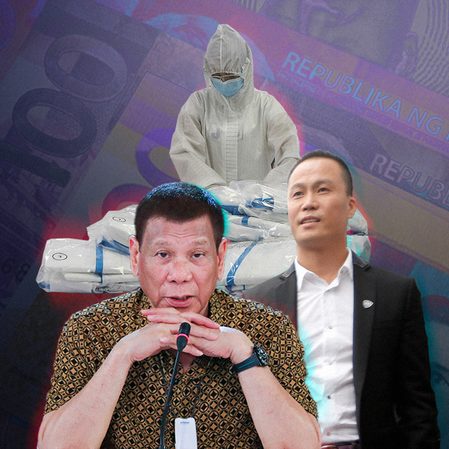
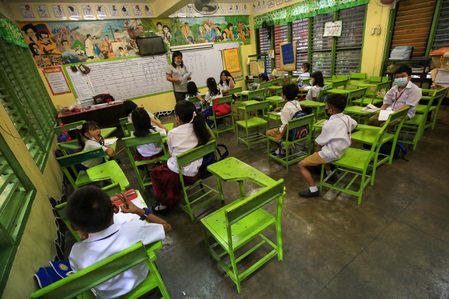
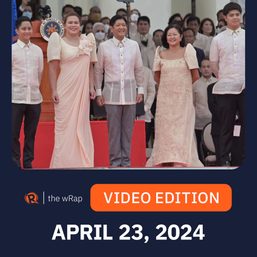
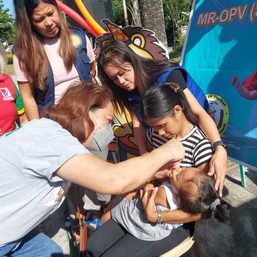
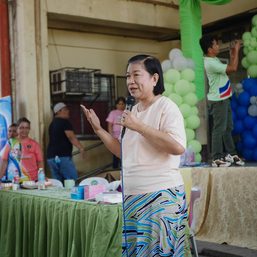
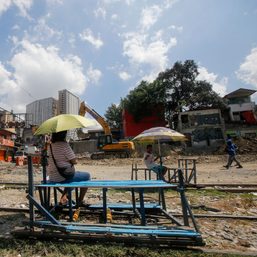

Thanks to Ms. Sophiya Navarro for this very informative, exploratory and persuasive article. But hope that she will understand that our President Marcos Jr. is trying hard to project an image as a “very hardworking and capable” President to counter his other negative images such as a “travel bug, Party Boy”, etc. Hence he took on the responsibilities of two Departments (DA & DOH) all by himself in addition to the Office of the President just to project such image. Yet, perhaps, he may change his mind in due time.